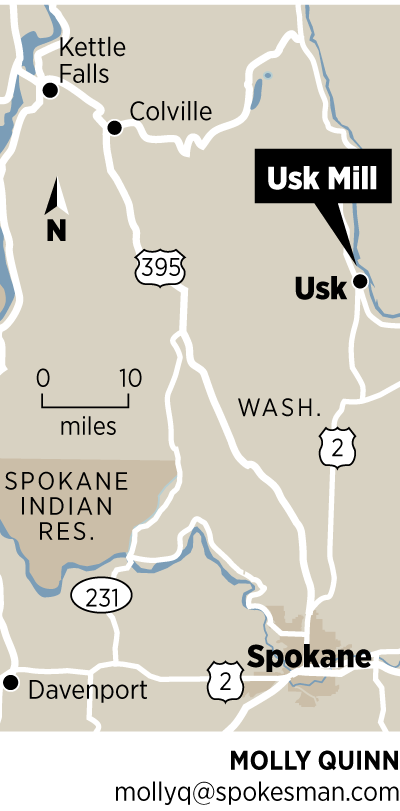Shortage of logs shuts down Usk mill

Vaagen Brothers Lumber has shut down its sawmill in Usk, Washington, as a result of a sluggish national housing market and a wildfire season that created a shortage of logs.
About 50 workers are affected by the mill’s closure.
Company officials say they will restart when market conditions improve.
“We remain optimistic … that we cannot only turn the mill back on but invest in it in the future,” said Russ Vaagen, company president. At the current time, however, “we made the tough decision to take the Usk mill down.”
The mill produces studs, which are used in home construction. Currently, log prices are too high compared to the price of studs for the Usk operation to be profitable, Vaagen said.
The shutdown started Monday. Continuing to run the mill at a loss would have put Vaagen Brothers’ larger sawmill in Colville in financial jeopardy, Vaagen said. About 150 people work at the Colville mill.
Vaagen attributed the higher log prices to last summer’s wildfire season, which shut down logging operations throughout most of the state for about four weeks due to extreme fire danger. During that time, Vaagen Brothers ran through its stockpile of logs for both the Colville and Usk mills.
Company officials expected the stockpile to be replenished in the fall from rapid salvage logging of burned trees in northeast Washington. However, salvage logging on private and tribal lands has been slower than expected, leading to competition for logs and higher prices, Vaagen said.
“Fires have a huge logistical impact on the industry,” said Travis Joseph, president of the American Forest Resource Council in Portland.
Many timber sales have short time frames, and if the work can’t get done in the summer, the opportunity to harvest is lost, he said. In addition, burned timber has a relatively short shelf life. If it isn’t harvested within six months, the wood can lose its value for lumber production, Joseph said.
The economics of the Usk mill were compounded by the national housing market, which hasn’t fully recovered from the recession, Vaagen said.
About 1 million homes were built in 2015, compared to the 30-year average of 1.5 million units annually, said Cindy Mitchell, senior director of public affairs for the Washington Forest Protection Association.
“In our rural areas, the economic recovery is still pretty tenuous,” she said. “It’s driven a lot by the nation’s housing market.”
Vaagen Brothers remains bullish about the mill’s long-term prospects, Vaagen said. The mill is set up to turn small-diameter logs into lumber. Company officials have been part of collaborative efforts with environmental groups to promote thinning to reduce the fire danger on the Colville National Forest and improve the vigor of tree stands.
The concept has broad political support, and eventually those sales should provide a steady flow of timber for the mill, Vaagen said.
Thinning dense, flammable stands of trees to create a healthier forest remains a priority for the Colville National Forest, said Franklin Pemberton, a Forest Service spokesman.
After the Kettle Complex fires, the Forest Service put up some roadside salvage sales of burned wood, he said. However, in meetings with the timber industry, industry officials suggested that the Forest Service continue to focus on sales of green trees, Pemberton said.